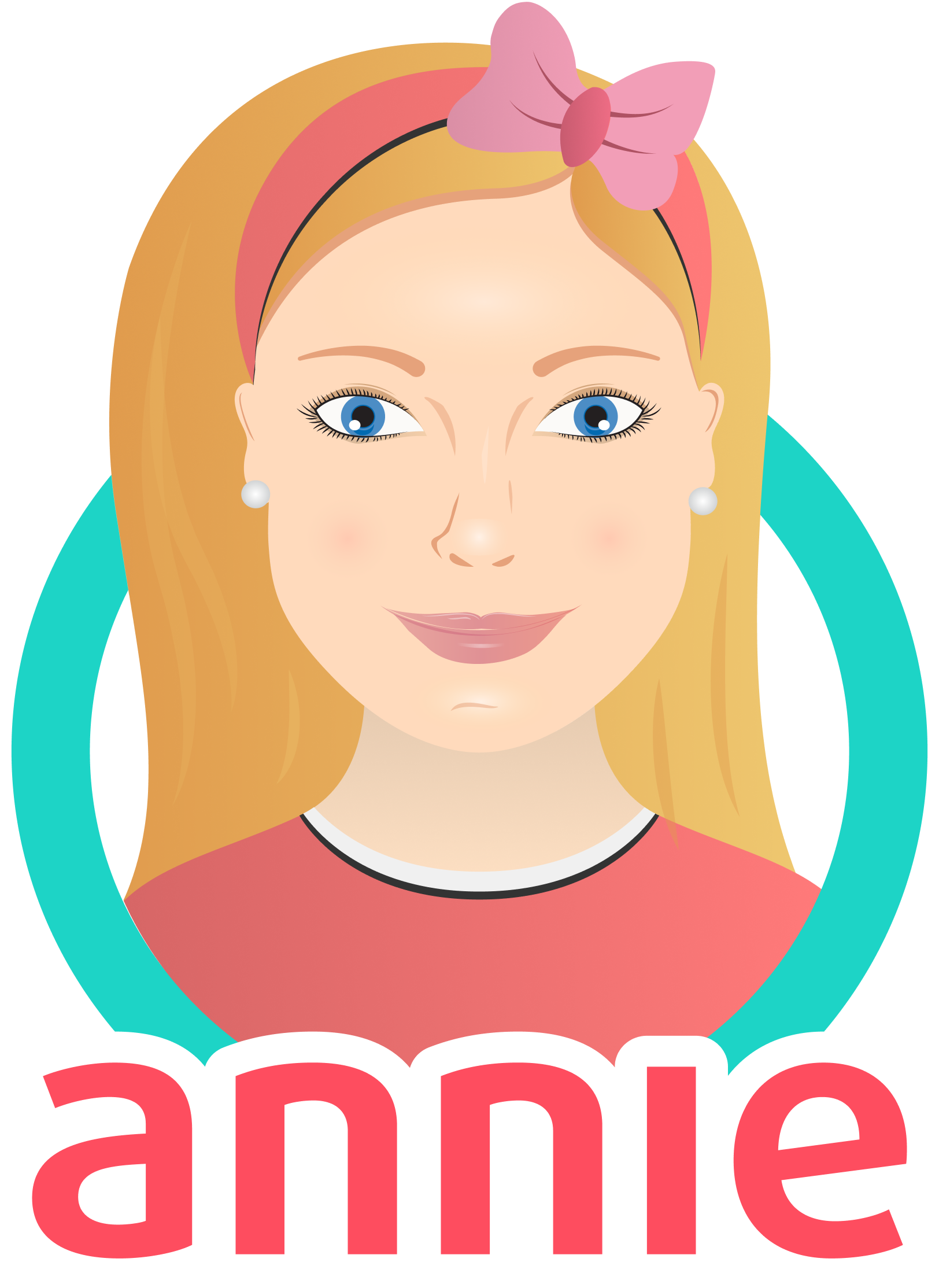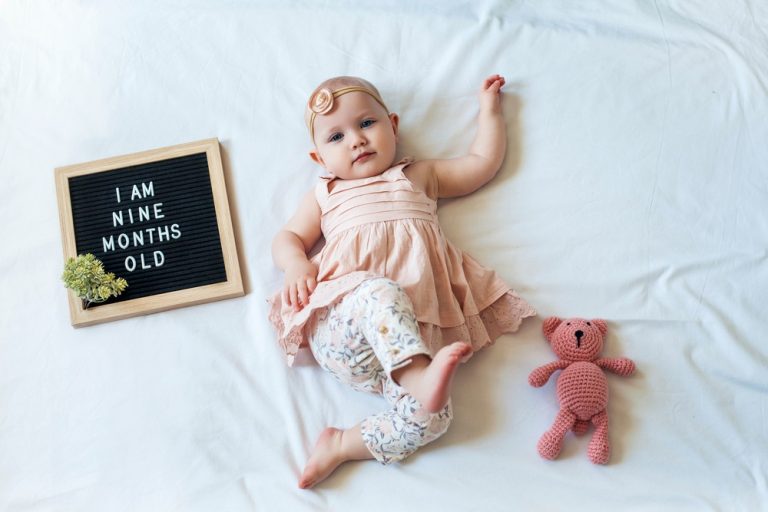
Baby’s Development – 9 Month Old Milestones
- Created:
2. 11. 2021 - Updated:
6. 11. 2023
<< Back to 8th Month
Go to 10th Month >>
Standing, walking, and many more …
In the 9th month of life, the baby is becoming more playful and exploratory. That’s why baby turns more and more often on his stomach and back on his back. The position on the tummy restricts the baby when playing and exploring the world around it. Likewise, for many children in the 9th month of life, it is no longer a problem to stay on their knees and move slowly forwards and backward.
At 9 months, the baby should be allowed to move as much spontaneously as possible in the open space. It is not recommended to put children in jumps or walkers for a long time.
Usually, the child stands on both feet in an upright position in 8-9. months.
Walking begins when a child transfers body weight from foot to foot. In the beginning, he makes small steps to the right and left, so he steps over almost in place. Towards the end of the ninth and in the tenth month, the child repeatedly takes a step with one foot and pushes on the other at the same time as feeling. In this way, he deliberately starts taking sideways steps to get to some interesting object.
Do not put your child’s shoes on as soon as they stand. For the healthy development of the foot arch, it is good to let the baby run barefoot or in socks to learn to tread properly and step onto the heels. If you have a slippery floor in the apartment, you can use socks for children with anti-slip barriers on their feet.
If the child can move on all fours, it is not difficult for him to sit down. The correct seat should be with a straight back. Some children like to sit on their heels, with one leg outstretched and the other bent. At the 9th month of life, the baby can already sit – in this position he can lean forward, bow, turn, etc., without falling.
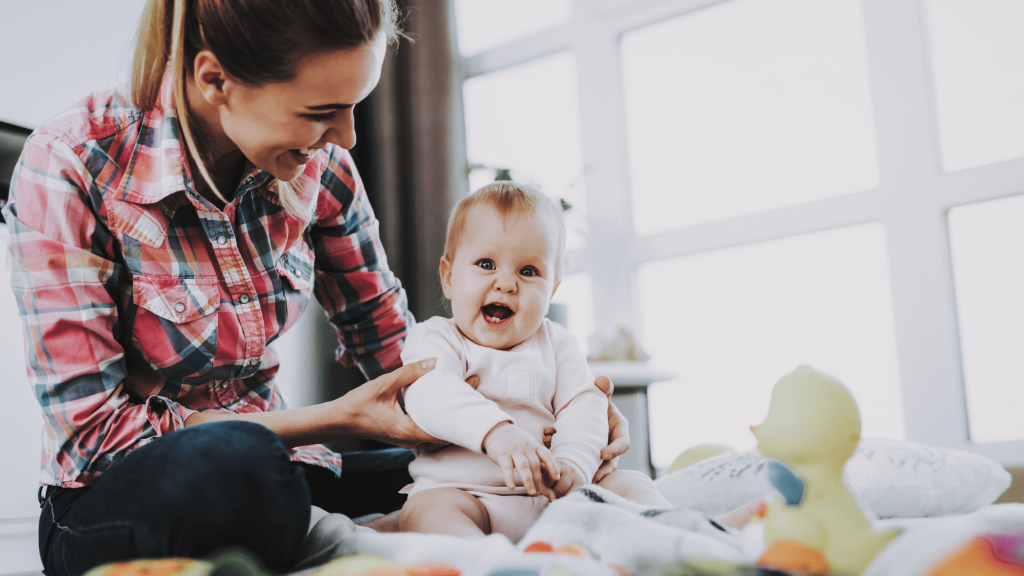
Development of Fine Motor Skills
Baby is usually able to easily grasp the object in various positions – on their backs, abdomen, standing or sitting. The movement of the hands is well-targeted and the child grasps the object with his fingertips, the thumb is in partial opposition to the fingers.
In the 9th month of life, baby is able to place the thing carefully on the table, put objects in boxes and containers, push them into holes, etc. These skills require the acquisition of seemingly simple and easy skills, namely to let go of the object at the right time.
💡 TIP: Games to support the development of motor skills.
This period is also characterized by the fact that children not only take objects in their hands but directly adore throwing objects and watching where they fly. You have to keep in mind that little explorers use not only eyes and hands, but also mouths to explore things around them. Therefore, make sure that the child does not swallow anything that could harm the baby.
Intellectual Development
During this period, cognition and awareness of the permanence of things and people deepen. Children already realize that the object exists, even if they do not see it. If we hide a toy, at first the child just watches the place where the object disappeared and waits for a while to see if it appears. Later, he tries to find the object himself.
💡 TIP: Games to support intellectual development.
Speech Development
You can notice increasingly clear developments in speech comprehension. The child develops his own activity in this direction. At the age of 9 months, it is possible to observe the beginnings of the generalization of concepts in a child – that is, when asked where the lamp is, the child points to a different lamp than the one we showed him before.
Some children at this stage of development begin to point the finger at the word-marked object and often have a rich passive vocabulary, ie words they understand. However, the response to many words is often insignificant.
Active vocabulary develops more slowly. Some children can already pronounce certain sounds in connection with a certain situation or object, others pronounce and duplicate syllables, eg. ma-ma, ta-ta.
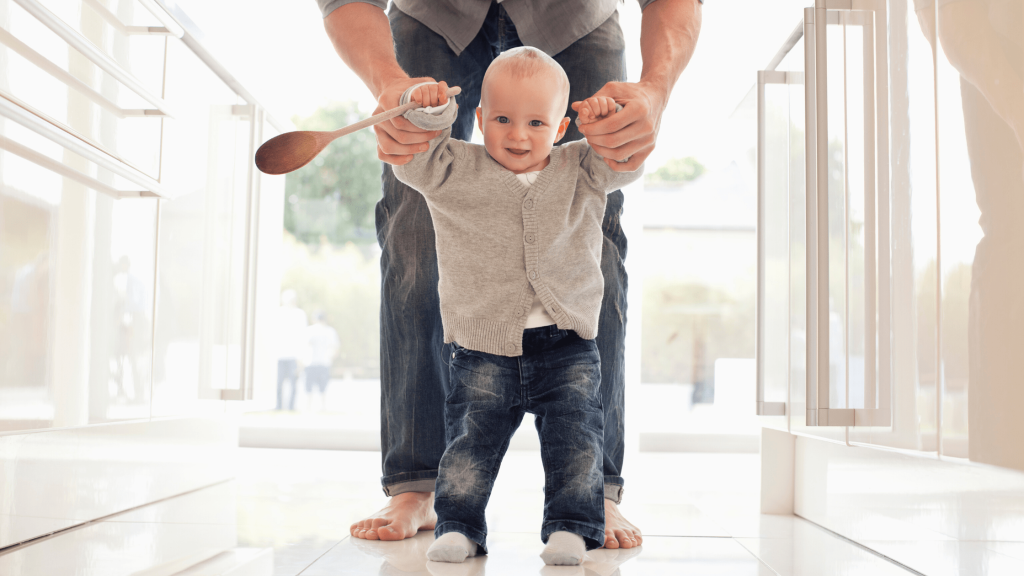
Social Behavior
The deepening of social relations and the fear of strangers is most pronounced in this period. This period is the period of occurrence of separation anxiety in the child. Some children tend to be more crying and want to be in the presence of their mother more often. They realize that they are not one, and these new feelings they have to deal with cause anxiety in them. Children become more repulsive and distrustful of their grandparents. So don’t feel bad about rejecting a baby, it’s a natural state of life in this month.
How to Play
An important condition is the presence and active involvement of the parent in the game. Encouragement and emotional reward in the form of caresses, praise and joy in the effort give children security and a sense of security.
💡 TIP: Games to support the baby’s development 9th month.
First Steps
The child’s first independent steps usually occur in the 4th quarter of the first year of life.
In order for a child to learn to walk, baby must gradually learn:
- stand on your feet and carry the weight of your whole body,
- take steps
- Maintain balance while walking.
It is also inappropriate to teach a child to walk by moving a chair or wheelchair in front of him. Some children get used to leaning forward when sliding. This habit must then be removed.
The First Word
When a baby says the first word is very individual. It depends on many factors. Some children say it as early as the 9th month of age, some in the 1st year and others even later. It often happens that the child does not want to talk because does not feel the need. It depends on how well his surroundings understand him and satisfy his needs, without the child having to express them verbally.
Developing active speech
Create an active supply of words based on words that the child understands. For example when a child is taught that a cow makes a boo, then only when the child knows what a cow is and points a finger at a picture of a cow.
Create active words from syllables that the child can already pronounce. When a child pronounces ba-ba well, we create a word denoting grandmother or grandmother. Only when the child can actively use words can we teach him words that are not easy to pronounce.
The first active words indicate the vital needs of the child – activities, loved ones, interesting objects, etc.
The best way to turn syllables into words is to give them a “trigger” function. This means that pronouncing syllables will have an effect – for example, as soon as the child pronounces ta-ta, the father appears and plays with the child, who thus finds that pronouncing certain syllables leads to a pleasant situation.
<< Back to 8th Month
Go to 10th Month >>
Final Tip: Cherish the Priceless 9-Month Milestones with Annie Baby Monitor
Your baby’s 9-month milestone is worth cherishing, so we recommend the Annie Baby Monitor to help you capture these unforgettable moments.
It’s more than just a baby monitor – it’s your memory keeper!
Download the Annie Baby Monitor to your phone and keep track of those heartwarming moments.
Don’t miss the chance to create lasting memories. Get your Annie Baby Monitor.
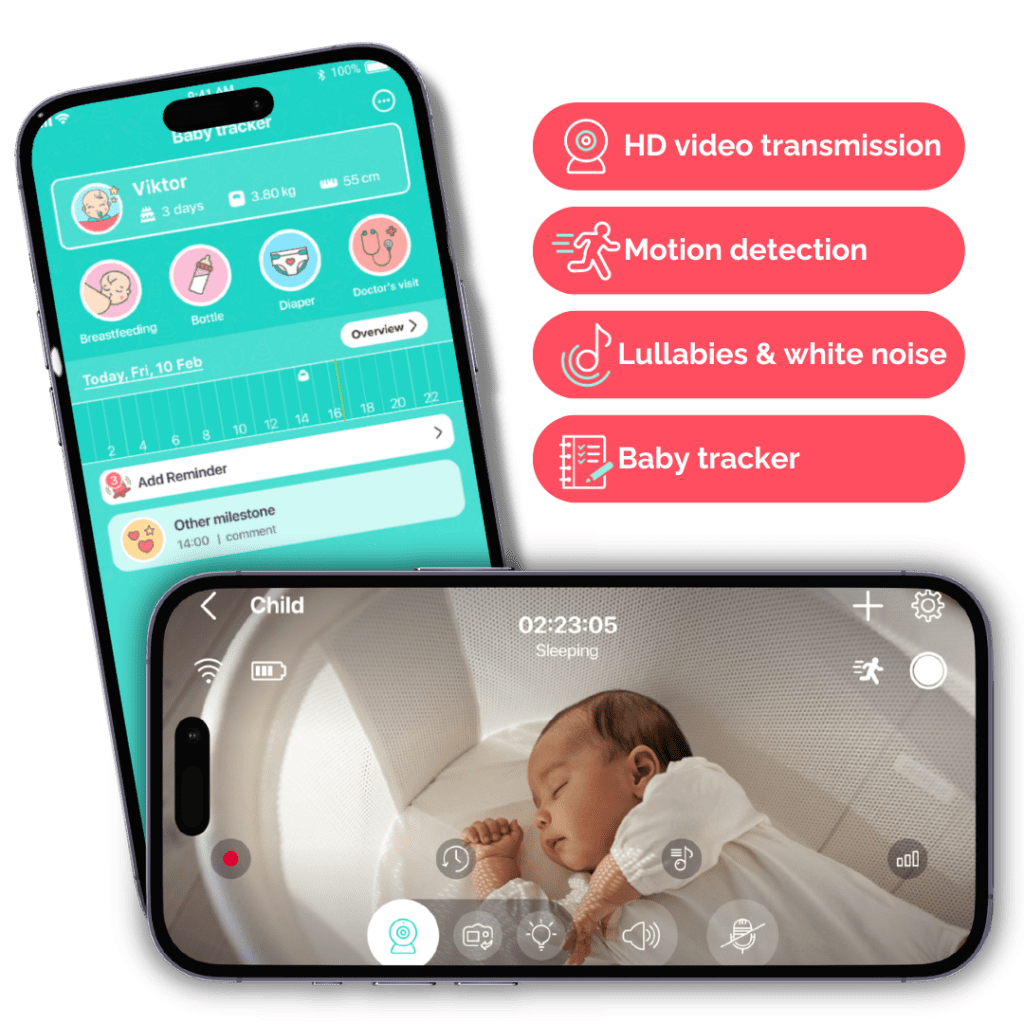
Conclusion
Entice the child to various movement games on the ground, so that he gradually learns to move in space on his own.
The game should prevail in a position on the belly, on the knees, or in a separate seat – if the child can.
Also, offer the child very small and delicate items to practice gripping. Make sure that the child does not swallow anything dangerous.
Support the development of the child’s active and passive vocabulary.




